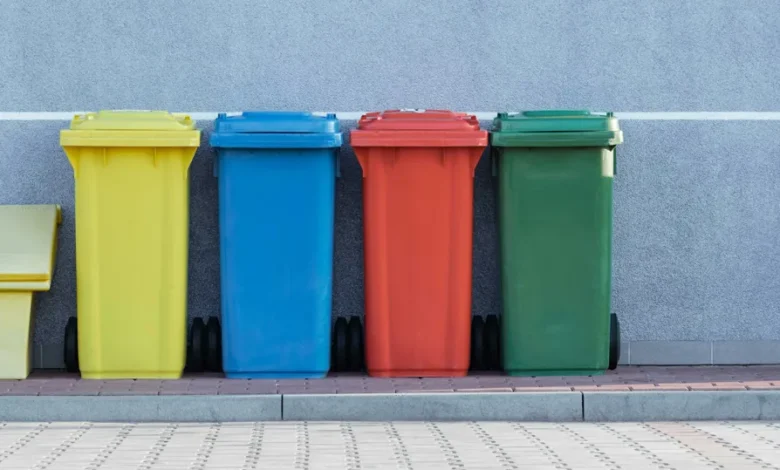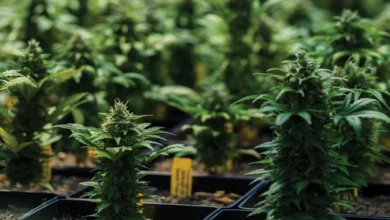Eco-Friendly Travel: Top Recycling Tips for Tourists Visiting Korea and Japan

One fascinating approach to learn about other cultures, meet people, and encounter several ways of life is by travel. Travelers, however, also have a duty to reduce our environmental effect. Properly recycling is one of the easiest yet most powerful approaches to accomplish this. Recycling is not only advised but also a way of life in nations like Korea and Japan. Both countries have tremendous dedication to maintain their surroundings clean and tight recycling policies.
Maintaining connections helps you to observe local norms, including recycling, even while you are on holiday. A useful tool is eSIM Japan that allows you to connect to local cell networks without changing out actual SIM cards. In the same way, eSIM Korea lets you access local information, use maps, and remain online for fast research, therefore enabling you to recycle properly and keep informed during your journey. From knowing their recycling systems to useful advice that will make your travels more environmentally responsible, this page will cover all you need to know about recycling in Korea and Japan.
Contents
Understanding Recycling Systems in Korea
Overview of Korea’s Recycling Culture
Strict recycling requirements abound in Korea, hence both locals and guests must respect them. You will see right away that the nation has made great effort in building a recycling culture. Waste is strictly categorized in Korea, hence breaking these guidelines could lead to fines.
Separate bins for different kinds of waste allow Korea’s extremely orderly recycling system. Plastics, paper, glass, metal, and food waste are the primary groups here. Pay close attention to the labels and signage on recycling containers since every category has particular rules for organizing and disposal.
How to Sort and Dispose of Waste
Regarding plastics and paper, Korea is quite exact about how these products are treated. Before being thrown in the recycling bin, plastic bottles and containers should be cleaned. Newspapers, periodicals, and cardboard among other paper goods should be sorted and bound in bundles.
Still another important factor in Korea is food waste. Food trash is collected separately and turned into compost or animal feed unlike many other nations. Most homes have specific containers for food waste, and some locations need you to use specifically biodegradable bags. Using the right bags and correctly disposed of food waste is crucial.
Before recycling glass and metal, you also must separate and wash the objects. Clearly marked receptacles for glass bottles and metal cans abound in many residential complexes and public locations. There are even occasionally particular containers for certain glass tints.
Where to Find Recycling Bins
Particularly in public areas including parks, subway stations, and tourist destinations, recycling containers are rather common in Korea. You should hang onto your recyclables until you find a suitable bin though, since you might not find them everywhere. Inquire of the personnel of a hotel or holiday rental about their recycling practices.
When you search for recycling containers or research local recycling policies, an eSIM might be quite useful. Using an eSIM, you can rapidly find recycling locations, maps, and even use apps meant to help you traverse the Korean recycling process.
Understanding Recycling Systems in Japan
Overview of Japan’s Recycling Culture
Japan is renowned for its cleanliness, which also permeates its systems of garbage management and recycling. Recycling is quite important to the Japanese, and garbage sorting and disposal policies are tight. Ignoring these guidelines might result in fines, much as in Korea.
Usually, waste in Japan is separated into many categories: burnable, non-burnable, plastics, and PET bottles. Every category has particular rules, and rubbish is typically picked on various week days. Familiarizing yourself with these categories will help you to guarantee proper recycling during your stay.
How to Sort and Dispose of Waste
Burnable garbage in Japan includes food wastes, paper, and little wooden objects. These should be put in specially marked burnable garbage bags, available at nearby convenience stores. Non-burnable waste including glass, ceramics, some kinds of metal, and some other materials has their own unique collecting system.
Regarding plastic bottles and cans, Japan has a developed recycling infrastructure. Common drink containers, PET bottles, should be cleaned and have their caps and labels taken off before being recycled. Usually with specific bins for PET bottles, it’s crucial to use them properly.
Japan also has certain guidelines for getting rid of unique products including electronics and batteries. Usually gathered separately at specified drop-off places, these items should not be combined with ordinary garbage.
Finding Recycling Bins and Centers
The lack of public garbage cans and recycling bins in Japan could present one of your difficulties there. This is so because Japanese society promotes individuals to bring their trash home and dispose of it correctly. Still, recycling containers abound in locations like convenience stores, sometimes known as conbini, which frequently feature plastics, PET bottles, and other recyclables.
Finding these recycling sites and knowing the local recycling regulations might be rather helpful if one uses an eSIM while in Japan. Apps can help you identify the right days for waste collecting in your location, simply search for surrounding recycling facilities, and even coach you on waste sorting techniques.
Tips for Practical Recycling Travelers
- Get Your Own Waste Bags.
It’s a good idea to pack your own little garbage bags while visiting Korea and Japan since recycling containers might not always be easily available. This lets you arrange and keep your recyclables until you come along a suitable bin. Many convenience stores carry little, portable garbage bags fit for your purse or backpack.
- Research Local Rules
Research the particular recycling requirements for the cities or areas you will be visiting before you travel. diverse fields may have somewhat diverse policies; hence, knowledge can enable you to prevent errors. Using an eSIM will let you quickly retrieve this data online, therefore guaranteeing your readiness wherever you travel.
- Participate in Recycling Programs
Many local recycling programs or community clean-up events available in Korea and Japan let visitors take part. This is a fantastic approach to learn more about their recycling methods and help the nearby society. Look for these chances; utilize your eSIM to keep informed on any events taking place during your trip.
- Avoid Single-Use Plastics
Avoiding single-use plastics wherever you can help to cut waste quite effectively. To cut your dependency on plastic, pack utensils, shopping bags, and a reusable water bottle. Water refill facilities abound in many locations in Korea and Japan; your eSIM will enable you to find these locations and identify establishments carrying environmentally friendly goods.
Conclusion
A major component of environmentally friendly travel is recycling, particularly in nations like Korea and Japan where appropriate trash management takes front stage. Understanding the local recycling systems, bringing your own waste bags, and keeping informed with an eSIM can enable you to make sure your trips are both fun and ecologically friendly.
Remember that every little deed adds up as you travel over these stunning nations. Following these recycling suggestions not only honors regional customs but also helps the worldwide endeavor to preserve our earth. Happy and environmentally friendly travel!




